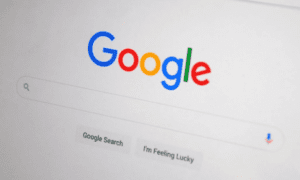Alphabet Inc.’s Google announced on Wednesday that it will resume allowing some consumers to use its artificial intelligence models to generate images of people.
TakeAway Points:
- Google has restored AI picture generation for Gemini Advanced users following a six-month halt because of representations that are racially offensive.
- Red-teaming exercises, improved evaluation sets, and explicit product principles to block improper content are examples of technical advances.
- The goal of the reintroduction is to address previous issues and rebuild trust in Google’s artificial intelligence capabilities.
Google lifts AI image generation ban
This comes after a suspension earlier this year due to a scandal involving historically inaccurate and racially insensitive depictions. In February, the company faced backlash for its image-generation tool, which produced incorrect racial depictions when prompted to create images of people. Alphabet CEO Sundar Pichai called the responses “completely unacceptable,” leading to the suspension of the feature while the company worked to address the concerns.
Six months later, Google is reintroducing the feature. The company will begin rolling out image generation to English-language users who pay for its Gemini Advanced product, which offers access to some of the company’s most cutting-edge AI models. Businesses will also be able to use the tool, which will be available in the coming days. Dave Citron, a senior director for product management at Google, wrote in a blog post that the company had made “significant progress” in generating depictions of people through Imagen 3, an AI model that underpins some of its products.
Technical improvements and safeguards
Google has implemented several technical improvements and safeguards to address the issues that led to the suspension of the feature. Citron mentioned that the company had improved evaluation sets, conducted red-teaming exercises, and established clear product principles. Red-teaming simulates using a product to find its potential harms before it reaches the public. “Of course, not every image Gemini creates will be perfect, but we’ll continue to listen to feedback from early access Gemini Advanced users as we keep improving,” Citron wrote.
Users will not be able to create photorealistic imagery, identifiable individuals, portrayals of minors, or “excessively gory, violent, or sexual scenes.” Google plans to gradually bring the feature to more users and languages. The company aims to ensure that the tool is used responsibly and does not generate inappropriate or harmful content.
Resolving Past Controversies
The reintroduction of the image-generation feature is an attempt to rectify past controversies. In February, Google faced criticism for its AI chatbot Gemini, which was unable to reliably create images of white people. This led to the suspension of Gemini’s ability to depict any human. The company also faced backlash for the initial launch of its chatbot Bard, which made a factual error in one of its first public outings. These incidents eroded confidence in Google’s ability to manage its AI capabilities.
Critics, including Elon Musk, owner of the social media service X, labeled Google’s AI as “racist & sexist.” A range of social media users echoed these sentiments, putting additional pressure on Google to fix the technology. The company has since incorporated the latest version of its image generator, Imagen 3, into the chatbot and announced that corporate customers could start creating customized versions of Gemini, known as Gems, which can be used as coding partners, learning coaches, or writing editors.



































